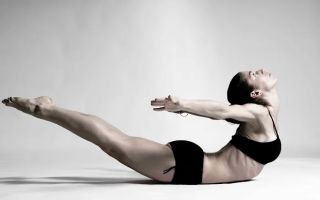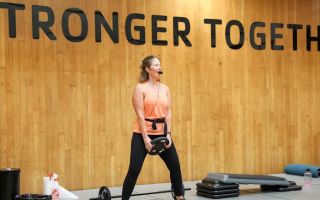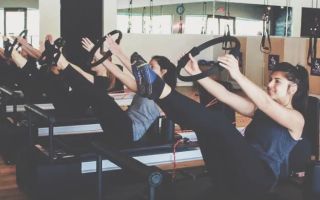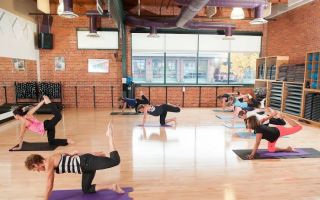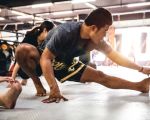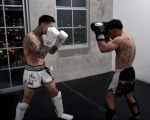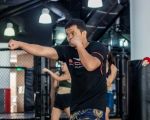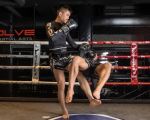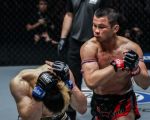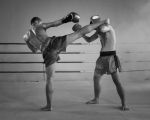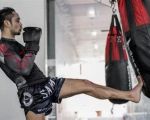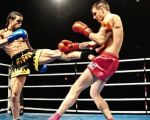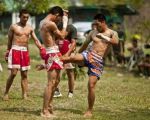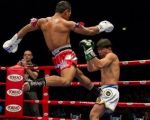How to Improve Defensive Techniques in Muay Thai: Mastering the Art of Defense
- Understanding Muay Thai and Its Defensive Techniques
- Key Defensive Techniques in Muay Thai
- Improving Footwork for Better Defense
- Mastering Blocking and Parrying
- Head Movement and Elusive Skills in Muay Thai
- Real-Life Examples and Training Stories
- Conclusion and Action
Muay Thai, known as the "Art of Eight Limbs," is a martial art that incorporates striking techniques using the fists, elbows, knees, and shins. While offensive techniques often steal the spotlight, defense plays an equally important role in any fight. Improving your defensive techniques in Muay Thai can mean the difference between winning and losing, as well as reducing the risk of injury. In this article, we'll dive into the essential defensive skills and strategies that every Muay Thai fighter should master.
1. Key Defensive Techniques in Muay Thai
To truly improve your defensive techniques in Muay Thai, you need to focus on several key aspects:
- Guard Position: The first line of defense in Muay Thai is your guard. A good guard should protect your head, body, and hands. Keep your hands up, elbows close to your body, and your chin tucked to minimize openings for strikes.
- Blocking and Parrying: Using your forearms to block punches and your hands to parry strikes is vital for absorbing or deflecting attacks with minimal impact. Precision and timing are key to perfecting these defensive maneuvers.
- Footwork: Proper footwork allows you to move quickly and maintain distance, making it easier to avoid attacks. Learning to sidestep, pivot, and retreat effectively will greatly enhance your defensive capabilities.
2. Improving Footwork for Better Defense
Footwork is crucial in Muay Thai. Good footwork allows you to avoid strikes and counter with your own attacks. Here are some tips to improve your footwork for better defense:
- Side Steps: When an opponent is coming at you with a powerful attack, stepping to the side can allow you to avoid the strike while positioning yourself for a counter.
- Pivoting: Pivoting is essential for creating angles. By rotating on your lead foot, you can easily dodge attacks and get in a better position to strike back.
- Maintaining Balance: Always stay balanced and ready to move. If you’re off-balance, you’re more likely to get hit. Practice fluid movement so that you can transition from defense to offense seamlessly.
3. Mastering Blocking and Parrying
Blocking and parrying are fundamental skills to avoid taking damage. Here’s how you can enhance your blocking and parrying techniques:
- Block with Your Forearms: To block kicks and punches, bring your forearms up to create a shield against your opponent's attacks. Proper positioning and timing are critical here.
- Parrying Attacks: Parrying involves redirecting your opponent’s strikes away from their intended target. By using your hands to deflect punches or kicks, you can create openings for counterattacks.
- Timing Is Key: Mastering when to block and when to parry can be difficult, but with enough practice, you’ll learn to read your opponent’s movements and respond with the right defensive technique.
4. Head Movement and Elusive Skills in Muay Thai
While many Muay Thai fighters rely on blocking and parrying, the best defense often involves movement—specifically, head movement and elusive skills. Here's how to sharpen these techniques:
- Slip and Roll: The slip involves moving your head to the side to avoid punches, while the roll allows you to evade hooks. These techniques require timing and quick reflexes.
- Duck Under Punches: When facing an opponent’s powerful straight punches, ducking under their strikes can prevent you from getting hit while positioning yourself for a counter.
- Head Feints: Feinting with your head can trick your opponent into thinking you’re about to move in a particular direction, opening the door for you to evade or counter their strike.
5. Real-Life Examples and Training Stories
Many Muay Thai practitioners have shared their experiences in improving their defensive techniques. For example, one Muay Thai fighter from Thailand, Somchai, trained for years before he perfected his defensive skills. He credits his progress to consistent practice, focusing on his guard, head movement, and footwork. By focusing on these areas, he was able to avoid damage while developing his offensive game.
Similarly, professional fighters like Saenchai and Buakaw are renowned for their impeccable defense. They use a combination of blocking, evading, and countering that makes them hard to hit. Observing their techniques and incorporating similar strategies into your own training can accelerate your defensive growth in Muay Thai.
6. Conclusion and Action
Improving defensive techniques in Muay Thai takes time, dedication, and consistent practice. By focusing on key areas such as footwork, blocking, parrying, and head movement, you’ll develop the skills needed to avoid damage and improve your overall performance in the ring.
Ready to take your Muay Thai training to the next level? Visit Humble Challenger for top-quality Muay Thai gear, including protective equipment, training pads, and more. Click here to discover the best tools to enhance your training!



